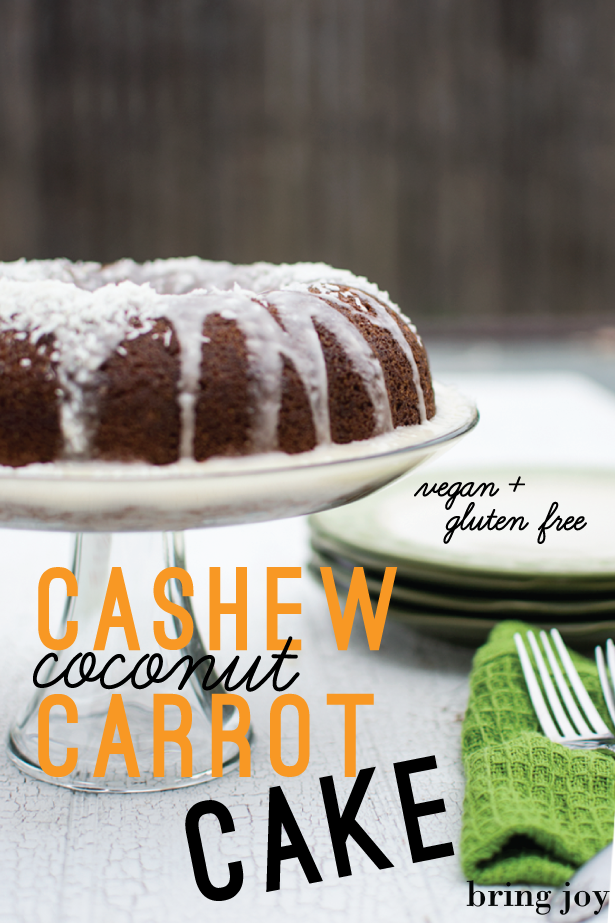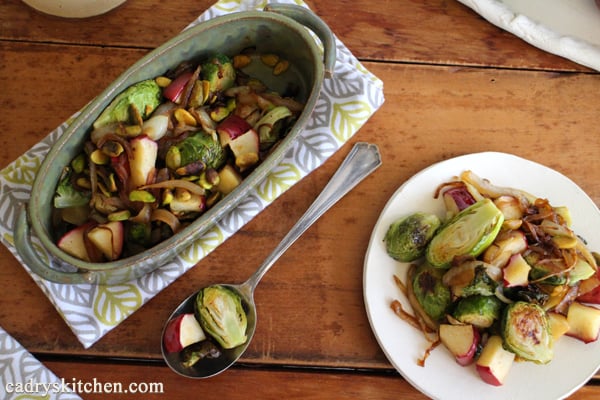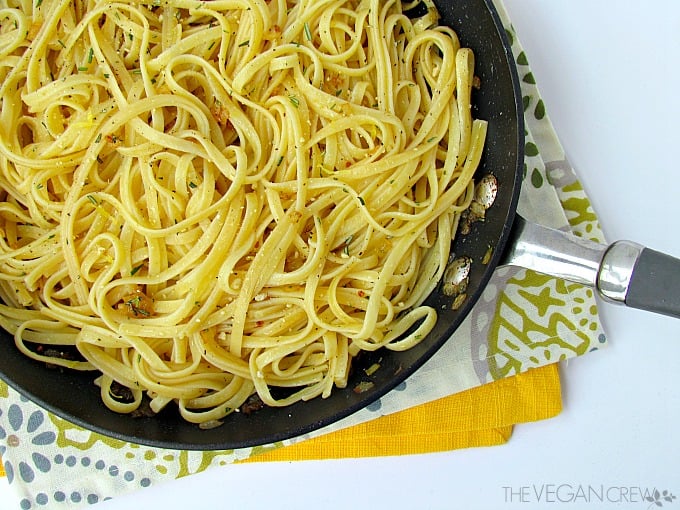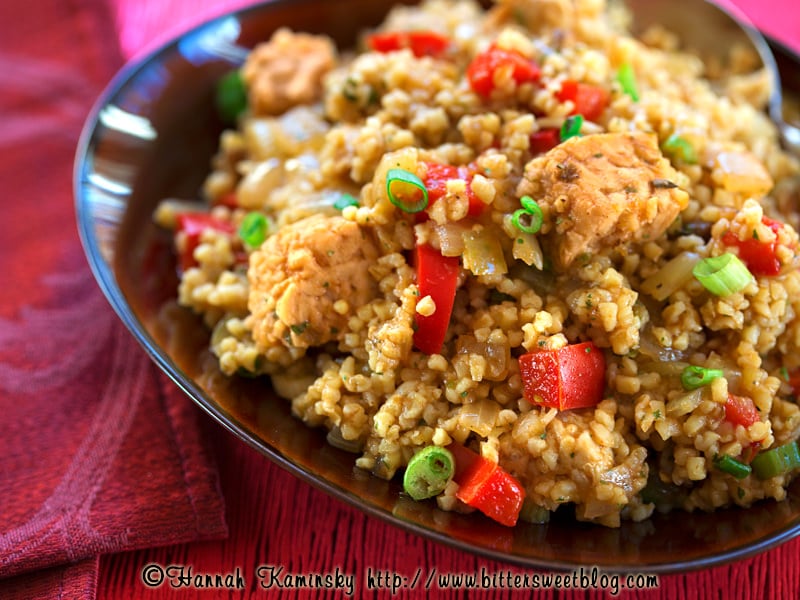Happy Sunday, friends. I had a busy weekend of NYC to DC travel (a good friend’s birthday party in New York on Friday night), coupled with some work, some yoga, some enjoyment of the blissfully clear and warm weather here in the District. Here are some recipes and reads that caught my eye over the past few days.
Let’s start with the sweet stuff this time. I am going to take Janae completely at her word, and believe that this is the best vegan and gluten free carrot cake. It looks amazing. By the way, Janae has a series, Marvelous Mondays, in which she rounds up links in a fashion not unlike weekend reading. You should check it out!
Meanwhile, how good do Cadry’s roasted Brussels sprouts with apples, caramelized onions, and pistachios look? Such a layered dish.
I know that I tend to post a lot of salads like this one as part of weekend reading, but I really can’t stop myself. I could eat a plate like this butternut squash and puy lentil salad from Veg Hotpot every day and be happy.
What you see above is comfort food at its finest: rosemary lemon butter noodles with almond parm from The Vegan Crew. Reminds me of a dish my mom always used to make me when I growing up: linguine with butter, parmesan, and black pepper. So simple.
I’ve been dying to try Freekeh, but haven’t gotten around to it yet. Leave it to Hannah, genius that she is, to make a “dirty freekeh” (a riff on dirty rice) that has me perched to pick up some Freekeh this week.
Reads
1. A new study, brought to my attention via Ecorazzi, suggesting a correlation between consumption of animal protein and diabetes. I quote:
The study examined participants who were a part of the EPIC study, the European Prospective Investigation into Cancer and Nutrition-InterAct case-control study, and found that for every additional 10 grams of protein people ate, the risk for developing diabetes went up by 13 percent. The goal of the study was to discover how lifestyle and genetic factors influenced the development of diabetes in European countries, and the researchers used food frequency questionnaires to determine the eating habits of the participants.
“Our study, the largest of its kind in terms of sample size, number of cases, and follow-up years, is the first to investigate the association between type 2 diabetes incidence and protein intake at a general European level,” the researchers write. They go on to say, “Overall, we conclude that a greater intake of total protein intake is associated with a higher type 2 diabetes incidence in European populations, but the effect of protein intake is small, and known type 2 diabetes risk factors are also important. Our results show that protein of animal origin is largely responsible for the association — not plant protein.”
I’ll be reading the study in full as soon as I get my hands on it.
2. Speaking of nutrition nitty gritty, the incomparable (yes, I use that word to describe her every single time) Ginny Messina has some characteristically nuanced and reasonable thoughts on some anti-vegan sentiment in certain paleolithic corners of the internet. There is no point trying to paraphrase, so I’ll offer up another quotation:
Like Gunnars, I doubt that a vegan diet is the one and only healthy way to eat. But his insistence that observed health benefits of vegan diets have nothing to do with avoiding animal foods doesn’t necessarily fit the evidence.
He’s also unimpressed with the lower saturated fat content of vegan diets because, he says with great certainty, the saturated fat “myth” has been debunked.
It’s this type of certainty that suggests more than anything that he doesn’t understand how complex nutrition research is. It’s true that the effects of saturated fat appear to be more nuanced than we once thought. For example, some types of saturated fat may be more harmful than others. And the benefits of reducing saturated fat intake depend very much on what you replace it with.
The hard lesson we’ve learned over the past few decades is that eating more refined carbs in place of saturated fat doesn’t lower heart disease risk; it’s likely to raise it. But replacing saturated fat with polyunsaturated fats does lower heart disease risk.
This relationship is actually reinforced in some of the studies that Gunnars cites as “proof” that you don’t need to worry about saturated fat. (5,6) For example, he says that the Cochrane review of clinical studies on fat found that reducing saturated fat had no effect on heart disease. What the report actually says is that the best advice for anyone at risk of heart disease is to reduce saturated fat and replace it in part with unsaturated fat. Gunnars ignores that advice because he thinks polyunsaturated fats are unhealthy.
– See more at: https://www.theveganrd.com/2014/04/paleo-advocates-get-vegan-diets-and-saturated-fat-wrong-2.html#sthash.E3cYmWhP.dpuf
Like Gunnars, I doubt that a vegan diet is the one and only healthy way to eat. But his insistence that observed health benefits of vegan diets have nothing to do with avoiding animal foods doesn’t necessarily fit the evidence.
He’s also unimpressed with the lower saturated fat content of vegan diets because, he says with great certainty, the saturated fat “myth” has been debunked.
It’s this type of certainty that suggests more than anything that he doesn’t understand how complex nutrition research is. It’s true that the effects of saturated fat appear to be more nuanced than we once thought. For example, some types of saturated fat may be more harmful than others. And the benefits of reducing saturated fat intake depend very much on what you replace it with.
The hard lesson we’ve learned over the past few decades is that eating more refined carbs in place of saturated fat doesn’t lower heart disease risk; it’s likely to raise it. But replacing saturated fat with polyunsaturated fats does lower heart disease risk.
This relationship is actually reinforced in some of the studies that Gunnars cites as “proof” that you don’t need to worry about saturated fat. (5,6) For example, he says that the Cochrane review of clinical studies on fat found that reducing saturated fat had no effect on heart disease. What the report actually says is that the best advice for anyone at risk of heart disease is to reduce saturated fat and replace it in part with unsaturated fat. Gunnars ignores that advice because he thinks polyunsaturated fats are unhealthy.
– See more at: https://www.theveganrd.com/2014/04/paleo-advocates-get-vegan-diets-and-saturated-fat-wrong-2.html#sthash.E3cYmWhP.dpuf
Like Gunnars, I doubt that a vegan diet is the one and only healthy way to eat. But his insistence that observed health benefits of vegan diets have nothing to do with avoiding animal foods doesn’t necessarily fit the evidence.
He’s also unimpressed with the lower saturated fat content of vegan diets because, he says with great certainty, the saturated fat “myth” has been debunked.
It’s this type of certainty that suggests more than anything that he doesn’t understand how complex nutrition research is. It’s true that the effects of saturated fat appear to be more nuanced than we once thought. For example, some types of saturated fat may be more harmful than others. And the benefits of reducing saturated fat intake depend very much on what you replace it with. The hard lesson we’ve learned over the past few decades is that eating more refined carbs in place of saturated fat doesn’t lower heart disease risk; it’s likely to raise it. But replacing saturated fat with polyunsaturated fats does lower heart disease risk.
This relationship is actually reinforced in some of the studies that Gunnars cites as “proof” that you don’t need to worry about saturated fat. (5,6) For example, he says that the Cochrane review of clinical studies on fat found that reducing saturated fat had no effect on heart disease. What the report actually says is that the best advice for anyone at risk of heart disease is to reduce saturated fat and replace it in part with unsaturated fat. Gunnars ignores that advice because he thinks polyunsaturated fats are unhealthy.
Like everyone else who takes an active interest in nutrition science, I’ve followed the new findings about saturated fat closely. I agree that they suggest that replacing saturated fat with refined carbohydrates and low-fat diet foods is no good, but I agree with Ginny that the evidence in favor of replacing saturated fats with polyunsaturated fats is still robust.
3. A different topic altogether, but I found this article about grief and social media to be really, really interesting. At first, I was expecting a negative gloss, since many critics tend to chaff at the idea of experiencing profound stuff–or talking about profound stuff–via such public outlets as Twitter or Facebook. It’s actually quite positive, quite hopeful, and I generally agree that a kind of powerful community can arise this way, even among strangers. Another quotation (I’m all about them tonight):
Yet while the experience of grief clearly changes the way we use social media, the possibility lingers that social media may also influence and mediate the nature of grief itself. Professor Garry Hare, program director for media psychology at Fielding Graduate University, argued toward this end. He praised social media for its work in “fomenting the grieving process…it sets it within the context of a community that comes together and says you are not alone. And that helps.” He suggested that social media has actually ameliorated the individual’s capacity to comfort the grieving, offering a framework conducive to the expression of sympathy.
“In the old days, you had to go knock on your neighbor’s door when something was wrong,” he said. “But not very many of us did it because we didn’t know what to say. We were just not equipped. You could send them soup. You can send them a note. Now, the distance provided by social media is extraordinarily safer and that doesn’t make it less meaningful.”
4. So, here’s what I’m really excited about this week. Two fellow bloggers–and friends–have written brave, meaningful posts that shed light on their experiences with EDs. The first one is from Carrie of Carrie on Vegan, who says she’ll be writing more about recovery as the weeks go by. I certainly hope she does. Carrie always manages to say very meaningful things in a humble, candid voice.
5. The second is from the lovely Jenni of Wellness by Jenni. It is long and honest and very evocative, and I was incredibly touched by it. Also, way to go Jenni, for ditching the scale.
Thanks to my friendships with these two women, I already knew snippets about their histories with EDs. But there is something so different about experiencing these stories as long narratives. And there is tremendous power in feeling firm enough in one’s commitment to recovery that one can actually write about it publicly. On a personal note, it almost brought tears to my eyes that both Carrie and Jenni cited Green Recovery as a source of inspiration in their ongoing recoveries. Ladies,I hope you both know that your stories would be a welcome and wonderful contribution to the series! So much love to you, and thank you for opening up so courageously.
Goodnight, all.
xo
You might also like
Happy weekend, friends! I’m writing the gorgeous city of Chicago, where I’m here to co-present a study abstract that I co-authored with the gastroenterologist I work for at Digestive Disease Week. It’s been 24 whirlwind hours of endoscopy demos and biliary disease and other such topics. While I prep for our poster talk, here are some of the recipes and articles that caught my eye this week. Hannah Kaminsky does it again with this whimsical, playful, and absolutely beautiful endive, artichoke and strawberry…
Happy first of the month, friends! I welcomed December today with my first sampling of Christmas carols, a little holiday shopping for my near and dear, and some perusal of scrumptious and seasonal recipes from friends. Here’s what I found: Ashlae’s baked pumpkin and tofu with kale looks like perfect seasonal comfort food. Speaking of pumpkin, I’m drooling over Anne’s pumpkin pie chia pudding (I love mixing pumpkin and chia! As well as pumpkin and…anything). Lauren’s raw coconut passionfruit kisses are not only…
This is the final installment of weekend reading for 2013. This little series is one of my favorite blog developments of the year! It has certainly made me a better and more avid reader of news, and it has also helped me to reconnect with food blog reading and recipe gazing (which I missed). I look forward to more of these posts in the new year. This harissa stew with purple sweet potatoes from Vegan Miam looks incredible. I made a lot of…
Happy Sunday, all! Thanks for your kind words about the new blog look. I’m delighted that you guys like it, and to those of you who were accustomed to the old look, and miss it, don’t worry: we’ll all adjust soon! There are still some small wrinkles being ironed out on the site, so if anything isn’t working, you can count on it being fixed soon (and if you notice that something’s still funky by the end of this week, holler and I’ll…







Leave a Comment
I’m grateful that my little freekeh post made your roundup of weekend reads! Thank you so much for the shout-out. 🙂
Such a great list, all the recipes look amazing – especially the Brussels sprouts. And great articles as usual, very interesting on diabetes.
“It’s actually quite positive, quite hopeful, and I generally agree that a kind of powerful community can arise this way, even among strangers.”
I also agree–social media is just a tool, not good or bad. It’s all about how people use it. I’ve been able to connect & form friendships with people from all over the world because of social media. Online interactions should never trump real life ones, but that doesn’t discount the fact that online social interactions have value too.
(And, thanks for sharing my carrot cake! ox)
I just got home from NYC yesterday! Sorry I missed you 🙁
Thank you for sharing mine and Carrie’s posts, Gena! A Green Recovery post is definitely in my future. Such an inspiring series you’ve created.
On another note, that pasta dish makes me laugh because it reminds me of whenever my family would go out for Italian food when I was younger. We’d all order these decadent pastas with creative sauces, while my little brother would ALWAYS order plain noodles with butter and parmesan. No matter how great everyone else’s dishes were, we all ended up eyeballing his plain noodles and wishing we just got that. His leftovers always got eaten by somebody who’d ditched their fancy pasta halfway through.